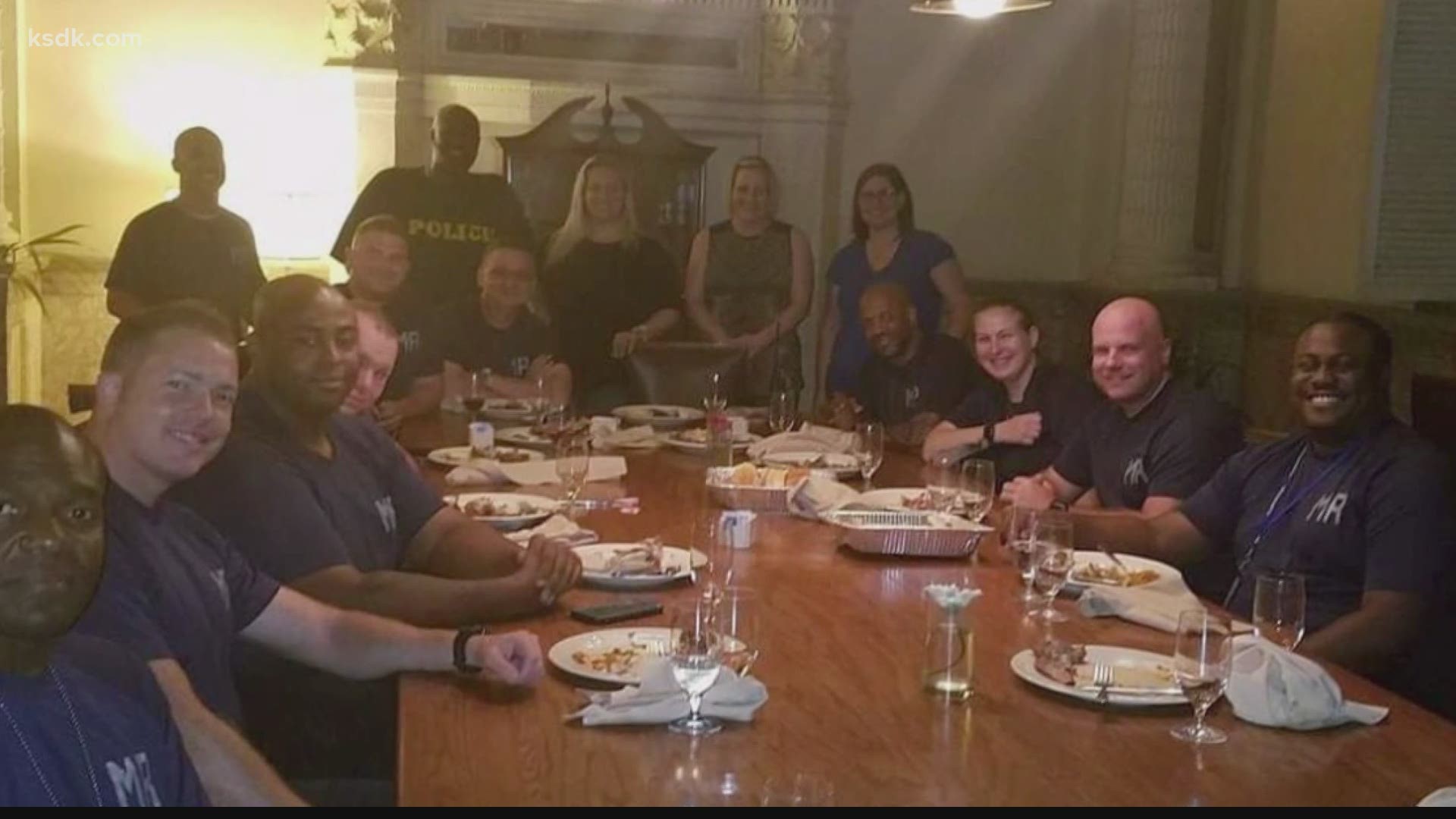BELLEFONTAINE NEIGHBORS, Mo. — St. Louis police Sgt. Charles Lowe knows what it’s like to survive trauma.
Suddenly, bullets tore through his windshield.
His bullet-resistant vest stopped one of them from tearing through his chest.
But it was the mental health help he got following the experience that saved his life.
“The first thing is realizing, ‘Hey, I’m not crazy, I’m not tripping,’ this is what I’ve learned, it’s part of the process,” Lowe said.
Ever since, Lowe has partnered with other St. Louis area first responders who have survived trauma to form a nonprofit that helps them, and others, begin the mental health part of the healing process.
They call themselves Project HURT, and they sprang into action the night a Bellefontaine Neighbors police officer struck and killed Moline Acres Police Sgt. Herschel Turner. Some of the group's members helped Moline Acres police officers, but Lowe said a Blue-on-Blue type of line-of-duty death presents additional mental health needs.
“After hearing what happened, I wanted additional resources,” Lowe said. “I would like a different set of eyes on this.”
So, Project HURT called in – and paid for – reinforcements the group has met since becoming part of a growing national network of peer support groups.
Many have formed in the absence of formal mental health units within their respective departments.
RELATED: 'He is mentally broken' | Chief describes moments before officer fatally hit police sergeant
Within days of the accident, The Warrior’s Rest Foundation mobilized five people from five different states to work with the Bellefontaine Neighbors Police Department.
“That's not done very often, but we can pull that off by having people who know and understand the gravity of why it's important to drop what you're doing and go help people who are hurting,” said Brad Shepherd, who leads the organization.
Bellefontaine Neighbors Police Chief Jeremy Ihler welcomed the support.
“These people can directly relate with the police officers who experienced this incident,” Ihler said.
Shepherd is a former Oklahoma State Trooper, who lost a partner in 1999.
His group also networks with other groups such as The Wounded Blue.
Many of them meet during National Police Week when departments from across the country gather in the nation’s capital to commemorate the officers who have died in the line of duty.
“We've buried a lot of partners, we've been through a lot of line of duty deaths, and as such, we know what the pitfalls are, we know what the land mines are, we know what the danger points are,” Shepherd said. “A couple of years ago, I got a phone call from a guy that said, ‘Hey, I've got a drink in one hand and I've got a gun in the other, and I'm not sure which I'm going put my mouth first. I really need your help.’”
For three days, Shepherd and his team met with Bellefontaine Neighbors’ 28 officers.
Sometimes individually.
Sometimes in groups to close any moments in time their senses may have missed under the stress of the night Sgt. Turner was killed.
“If you can fill that those tiny gaps in with accurate information, it processes better,” Shepherd said. “It doesn't require psychotherapy later.
“You can actually go home. Lay down, go to sleep and process it.”
Hence the name, Warrior’s Rest.
“Rest is the foremost saving empowerment tool of any warrior,” Shepherd said. “If you're not sleeping well, you're not going to process the information correctly.
“If you're not processing the information correctly, now you're living with all these crazy things in your brain over an extended period of time.”
Ihler said he believes the experience taught his officers how to recognize if they need help – and, most importantly, that it’s OK to ask for it.
“Quite a few of them were interested in pursuing some sort of mental health benefits that the department provides based on those conversations we had with Warrior’s Rest,” he said.
Lowe isn’t surprised.
“It's a process you have to go through, but you will,” he said. “And you can come out victorious on the other side.”

